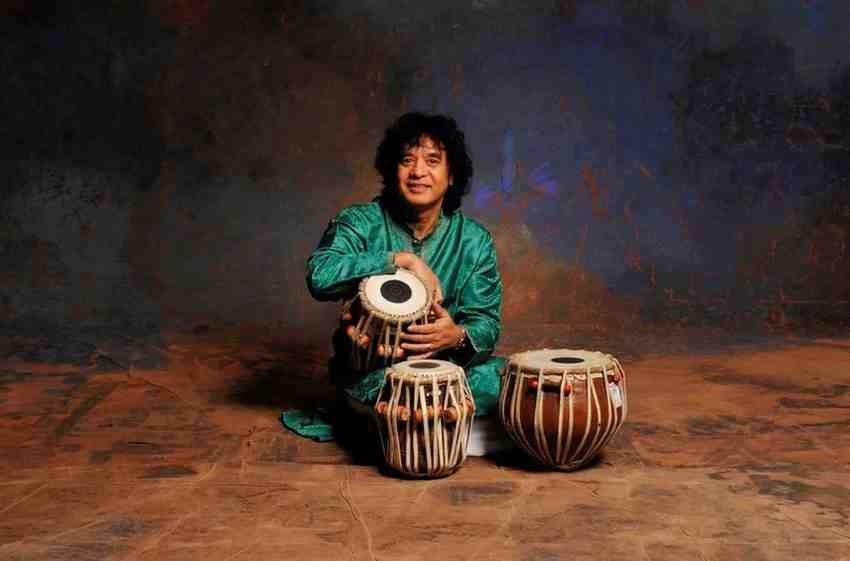In the realm of Indian classical music, few names evoke the same level of reverence and admiration as Zakir Hussain. A tabla virtuoso, composer, and cultural ambassador, Hussain has spent a lifetime redefining the boundaries of traditional Indian music. With a career spanning over five decades, he has collaborated with some of the most iconic musicians across genres, leaving an indelible mark on the world music landscape.
Born on March 9, 1951, in Mumbai, India, Zakir Hussain was destined for greatness. His father, Alla Rakha Qureshi, was a renowned tabla player and a key figure in popularizing Indian classical music globally. Growing up in a household steeped in music, Zakir began his tabla training at the tender age of three. Under the guidance of his father and other esteemed gurus, he honed his craft, demonstrating a prodigious talent that would soon propel him to the forefront of Indian classical music.
Hussain’s professional career took off in the early 1970s, with performances alongside his father and other leading musicians of the time. His breakthrough moment arrived in 1970 when he accompanied legendary sitar maestro Ravi Shankar on a historic tour of the United States. This exposure not only introduced Hussain to a global audience but also paved the way for future collaborations with international artists.
Throughout the 1970s and 1980s, Hussain continued to push the boundaries of traditional Indian music. He experimented with fusion projects, incorporating elements of jazz, rock, and world music into his compositions. This eclectic approach led to the creation of the iconic band Shakti, which brought together Indian and Western musicians in a celebration of cross-cultural exchange.
One of Hussain’s most significant contributions to Indian classical music is his work in popularizing the tabla as a solo instrument. Traditionally, the tabla was relegated to an accompanying role, providing rhythmic support to melodic instruments like the sitar or sarod. Hussain’s virtuosic performances and innovative compositions helped elevate the tabla to center stage, showcasing its expressive capabilities and emotional depth.
In addition to his work as a performer and composer, Hussain was an ardent advocate for Indian classical music and culture. He worked tirelessly to promote cross-cultural understanding and exchange, collaborating with artists from diverse backgrounds and genres. His efforts have been recognized with numerous awards and honors, including the Padma Shri, Padma Bhushan, and the Grammy Award.
As Zakir Hussain looks back on a lifetime of achievements, he remains committed to pushing the boundaries of Indian classical music. His passion for innovation and experimentation continues to inspire new generations of musicians and music enthusiasts alike. As a cultural ambassador, educator, and performer, Zakir Hussain’s enduring legacy serves as a testament to the transformative power of music to bridge cultures, foster understanding, and uplift humanity.
With a career spanning over five decades, he mesmerized audiences worldwide with his exceptional skill and innovative style, earning numerous accolades. His demise on December 16 marks the end of an era in Indian classical music.








